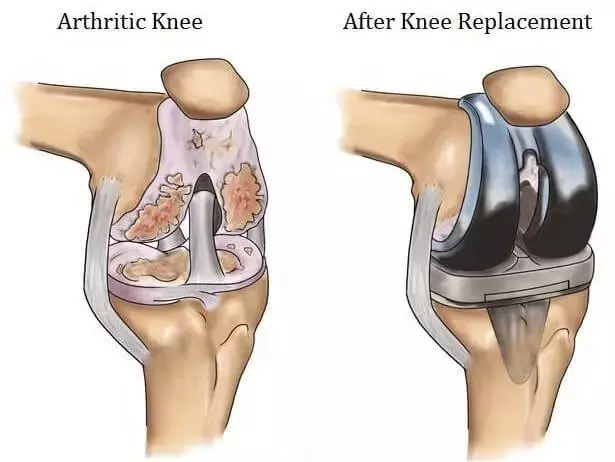- Home
- Medical news & Guidelines
- Anesthesiology
- Cardiology and CTVS
- Critical Care
- Dentistry
- Dermatology
- Diabetes and Endocrinology
- ENT
- Gastroenterology
- Medicine
- Nephrology
- Neurology
- Obstretics-Gynaecology
- Oncology
- Ophthalmology
- Orthopaedics
- Pediatrics-Neonatology
- Psychiatry
- Pulmonology
- Radiology
- Surgery
- Urology
- Laboratory Medicine
- Diet
- Nursing
- Paramedical
- Physiotherapy
- Health news
- Fact Check
- Bone Health Fact Check
- Brain Health Fact Check
- Cancer Related Fact Check
- Child Care Fact Check
- Dental and oral health fact check
- Diabetes and metabolic health fact check
- Diet and Nutrition Fact Check
- Eye and ENT Care Fact Check
- Fitness fact check
- Gut health fact check
- Heart health fact check
- Kidney health fact check
- Medical education fact check
- Men's health fact check
- Respiratory fact check
- Skin and hair care fact check
- Vaccine and Immunization fact check
- Women's health fact check
- AYUSH
- State News
- Andaman and Nicobar Islands
- Andhra Pradesh
- Arunachal Pradesh
- Assam
- Bihar
- Chandigarh
- Chattisgarh
- Dadra and Nagar Haveli
- Daman and Diu
- Delhi
- Goa
- Gujarat
- Haryana
- Himachal Pradesh
- Jammu & Kashmir
- Jharkhand
- Karnataka
- Kerala
- Ladakh
- Lakshadweep
- Madhya Pradesh
- Maharashtra
- Manipur
- Meghalaya
- Mizoram
- Nagaland
- Odisha
- Puducherry
- Punjab
- Rajasthan
- Sikkim
- Tamil Nadu
- Telangana
- Tripura
- Uttar Pradesh
- Uttrakhand
- West Bengal
- Medical Education
- Industry
Bisphosphonates enriched bone cement reduces risk of osteoporotic fractures and aseptic revisions in TKR

Osteoporosis is a problem for many patients after total knee arthroplasty (TKA). The aseptic loosening of the prosthesis is also a significant problem. Therefore, in these patients, bisphosphonates (BPs) are used that, by influencing the level of bone turnover markers, reduce the risk of osteoporotic fractures and aseptic revisions in TKA.
Anna Matuszewska et al conducted a study at Lublin, Poland to assess whether the Pamifos® present in bone cement has any effect on the level of selected bone turnover markers and cytokines in patients after total knee arthroplasty. The article has been published in "International Orthopaedics" journal.
The study group consisted of 30 women with degenerative changes of the knee joint, whose total knee prosthesis was stabilized with cement enriched with Pamifos®. The control group consisted of 30 women treated for degenerative changes of the knee joint without the use of bisphosphonate-enriched cement for prosthetic stabilization.
• In the study group, the authors found a decrease in tumour necrosis factor (TNF-α) levels 12 weeks after surgery, whereas the control group experienced an almost twofold increase in TNF-α level.
• The concentration of OPG, a natural RANKL antagonist, was highest in patients of the study group six weeks after surgery and was four times higher compared to the control group.
• Statistically significant differences were found in the RANKL level (p< 0.05).In the control group, there was a continuous increase in RANKL concentration from the first to the 12th week after surgery. The highest level of RANKL in patients of the study group was found six weeks after the surgery, and 12 weeks after knee arthroplasty, it was significantly lower.
• It was found that the concentration of osteocalcin (OC) in the study group was the lowest three weeks after the surgery, then it increased and remained at a similar level after 12 weeks.
• The concentrations of selected cytokines (IL-1β, IL-2, IL-6, IL-10, IL-17AF) also showed statistically significant differences.
Summarizing, the authors postulate that BPs, which have been widely studied experimentally and have clinical application in the treatment of osteoporosis and other bone metabolic disorders, are effective in knee arthroplasty, as it was confirmed by the results of research. The authors concluded that the use of a bisphosphonate (Pamifos®) in bone cement has an effect on bone turnover. The BP-stimulated increase in the level of OPG and the decrease in the level of RANKL, as well as the impact on the level of the analyzed interleukins in the bone microenvironment, may be an important element of the mechanisms limiting bone resorption. Therefore, the use of BP-enriched bone cement in knee arthroplasty appears to be justified, as does the use of bisphosphonates in the prevention of periprosthetic resorption of the femur after total hip arthroplasty.
Further reading:
Efect of bisphosphonates on selected markers of bone turnover in patients after total knee arthroplasty.
Anna Matuszewska, Łukasz Matuszewski et al.
International Orthopaedics (2022) 46:1529–1538
https://doi.org/10.1007/s00264-022-05407-z
MBBS, Dip. Ortho, DNB ortho, MNAMS
Dr Supreeth D R (MBBS, Dip. Ortho, DNB ortho, MNAMS) is a practicing orthopedician with interest in medical research and publishing articles. He completed MBBS from mysore medical college, dip ortho from Trivandrum medical college and sec. DNB from Manipal Hospital, Bengaluru. He has expirence of 7years in the field of orthopedics. He has presented scientific papers & posters in various state, national and international conferences. His interest in writing articles lead the way to join medical dialogues. He can be contacted at editorial@medicaldialogues.in.
Dr Kamal Kant Kohli-MBBS, DTCD- a chest specialist with more than 30 years of practice and a flair for writing clinical articles, Dr Kamal Kant Kohli joined Medical Dialogues as a Chief Editor of Medical News. Besides writing articles, as an editor, he proofreads and verifies all the medical content published on Medical Dialogues including those coming from journals, studies,medical conferences,guidelines etc. Email: drkohli@medicaldialogues.in. Contact no. 011-43720751


